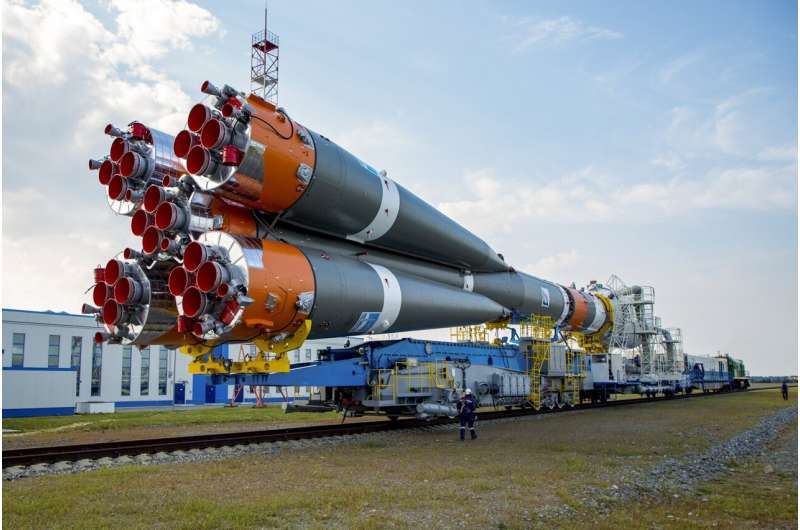
Copernical Team
Mars exploration reveals evidence of life-conducive environment
 Mars, often dubbed the 'Red Planet', has long been a focal point for scientists in the quest to uncover extraterrestrial life. Unlike Earth, Mars' surface is not subjected to the perpetual shifting and renewing influences of plate tectonics. This lack of tectonic activity has bequeathed Mars with expanses of land showcasing remnants of fossil rivers and lakes that date back billions of years.
Mars, often dubbed the 'Red Planet', has long been a focal point for scientists in the quest to uncover extraterrestrial life. Unlike Earth, Mars' surface is not subjected to the perpetual shifting and renewing influences of plate tectonics. This lack of tectonic activity has bequeathed Mars with expanses of land showcasing remnants of fossil rivers and lakes that date back billions of years. GAO affirms NASA's decision on Intuitive Machines' $719M lunar contract
 In a recent move, the U.S. Government Accountability Office (GAO) has corroborated NASA's evaluation of the OMES III proposals, which subsequently resulted in a significant award to Intuitive Machines. The nod from GAO further reinforces the confidence in the selection process.
The contract, a hefty five-year deal valued at up to $719 million, was awarded to Space and Technology Solutions.
In a recent move, the U.S. Government Accountability Office (GAO) has corroborated NASA's evaluation of the OMES III proposals, which subsequently resulted in a significant award to Intuitive Machines. The nod from GAO further reinforces the confidence in the selection process.
The contract, a hefty five-year deal valued at up to $719 million, was awarded to Space and Technology Solutions. Week in images: 07-11 August 2023
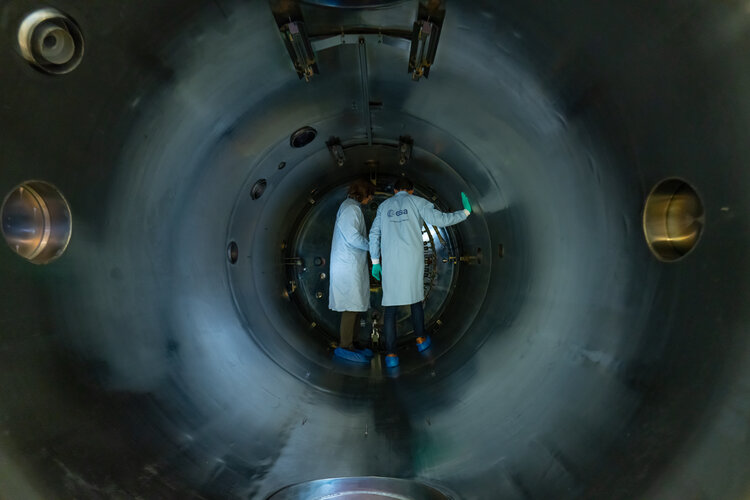
Week in images: 07-11 August 2023
Discover our week through the lens
A rocket with a lunar landing craft blasts off on Russia's first moon mission in nearly 50 years
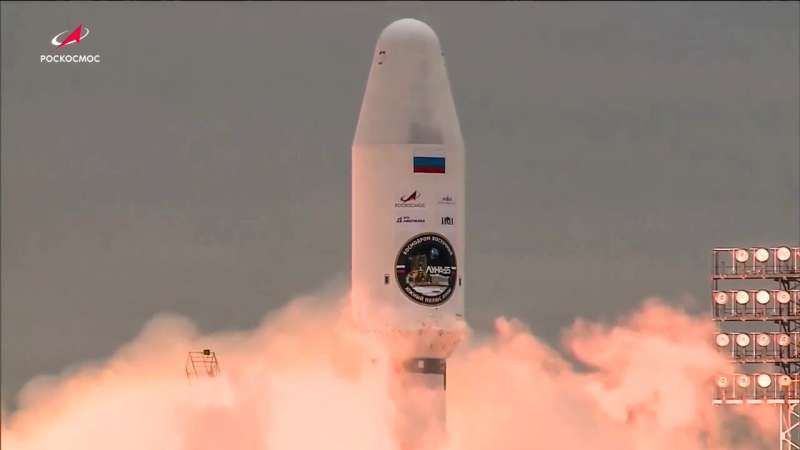
After 17 years, NASA's STEREO-A spacecraft makes its first Earth flyby
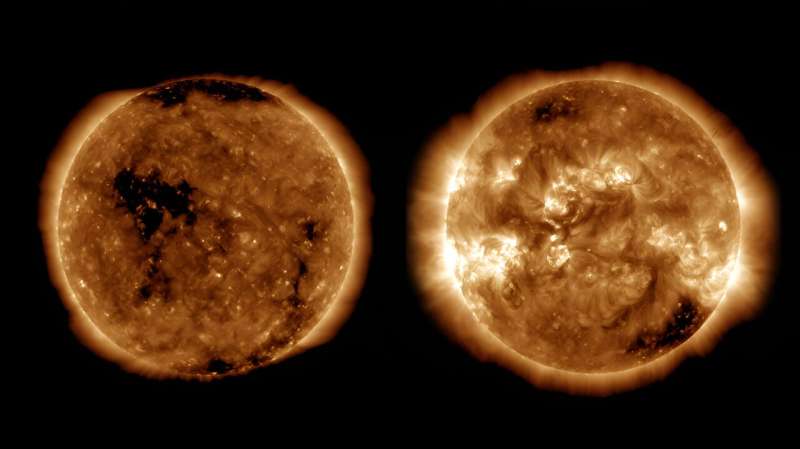
On August 12, 2023, NASA's STEREO-A spacecraft passes between the sun and Earth, marking the first Earth flyby of the nearly 17-year-old mission. The visit home brings a special chance for the spacecraft to collaborate with NASA missions near Earth and reveal new insights into our closest star.
Putting a stamp on Huginn
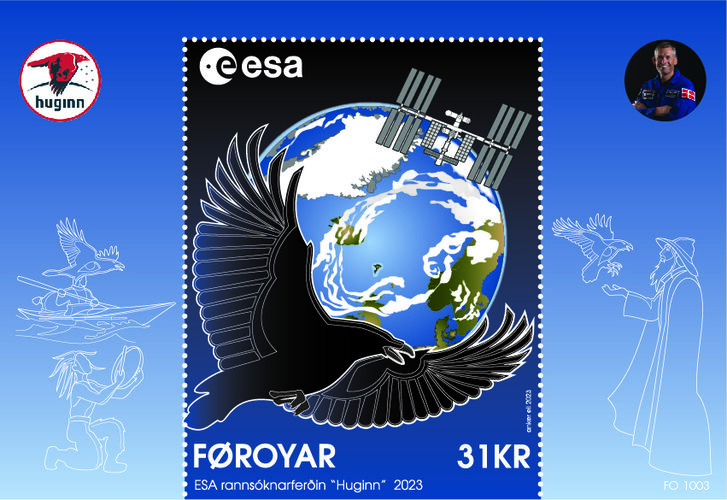
A new stamp for the Huginn mission has been released, taking inspiration from the mission’s Nordic name, Huginn, it presents a colourful design with a deep history.
Virgin Galactic rockets its first tourist passengers into space
 Virgin Galactic launched its first tourist passengers into the weightlessness of space Thursday, the culmination of a nearly two-decade commercial pursuit, the company said.
The three passengers - Jon Goodwin, Keisha Schahaff, and her teenage daughter Anastatia Mayers - floated gravity-free through the Virgin spacecraft about 45 minutes after taking off.
"They are officially astronauts
Virgin Galactic launched its first tourist passengers into the weightlessness of space Thursday, the culmination of a nearly two-decade commercial pursuit, the company said.
The three passengers - Jon Goodwin, Keisha Schahaff, and her teenage daughter Anastatia Mayers - floated gravity-free through the Virgin spacecraft about 45 minutes after taking off.
"They are officially astronauts Russia launches first Moon mission in nearly 50 years
 Russia launched its first probe to the Moon in almost 50 years on Friday, a mission designed to give fresh impetus to its space sector, which has been struggling for years and become isolated by the conflict in Ukraine.
The launch of the Luna-25 probe is Moscow's first lunar mission since 1976, when the USSR was a pioneer in the conquest of space.
The rocket with the Luna-25 probe lifted
Russia launched its first probe to the Moon in almost 50 years on Friday, a mission designed to give fresh impetus to its space sector, which has been struggling for years and become isolated by the conflict in Ukraine.
The launch of the Luna-25 probe is Moscow's first lunar mission since 1976, when the USSR was a pioneer in the conquest of space.
The rocket with the Luna-25 probe lifted Watch NASA engineers put a Mars lander's legs to the test
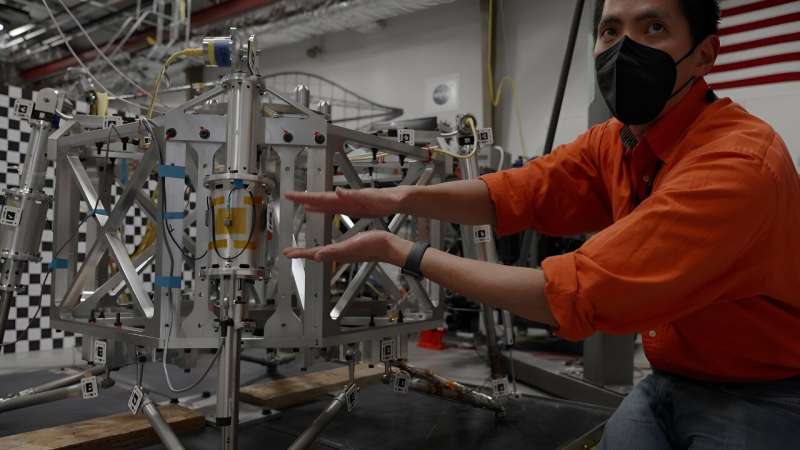
Sturdy legs are needed to absorb the impact of the heaviest spacecraft to ever touch down on the Red Planet.
NASA's Perseverance rover continues to rack up tubes filled with rock core samples for the planned Mars Sample Return campaign. The joint effort by NASA and ESA (European Space Agency) seeks to bring scientifically selected samples back from Mars to be studied on Earth with lab equipment far more complex than could be brought to the Red Planet. Engineers are busy designing the Sample Retrieval Lander that would help bring those samples to Earth. As part of that effort, they've been testing prototypes of the lander's legs and footpads at NASA's Jet Propulsion Laboratory in Southern California.
Russia is to launch its first mission to the moon in almost 50 years
